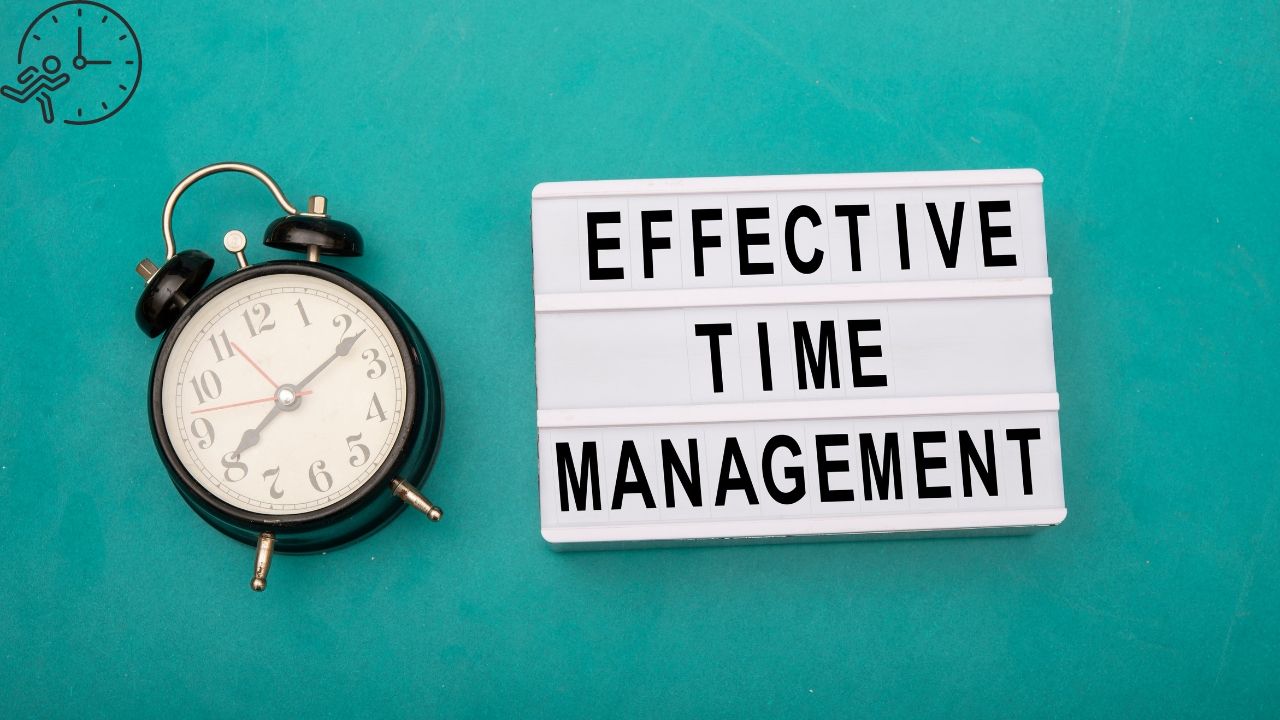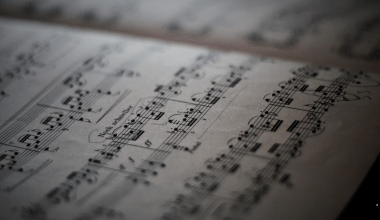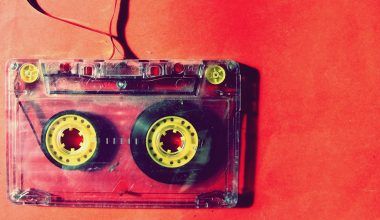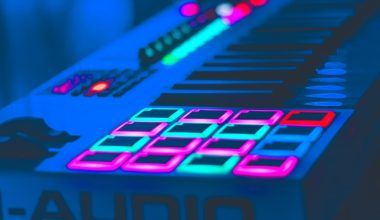Creating music is an art that requires dedication, passion, and, most importantly, time. For many aspiring musicians, finding the time to create can be a significant challenge. Whether you’re juggling a day job, family responsibilities, or other commitments, learning how to use your time to create music effectively can make all the difference in your musical journey.
In this blog, we will explore practical tips and strategies that can help you manage your time better. We’ll dive into how to set priorities, find inspiration, and balance your creative pursuits with daily life. By the end of this guide, you’ll have a clear understanding of how to use your time to create music and make the most of every minute.
Understanding the Importance of Time Management in Music Creation
Time management is not just about getting things done; it’s about making the most of your creative potential. As a musician, you need time to practice, write, record, and refine your music. Without proper time management, your creativity can become stifled, leading to frustration and burnout.
Key Benefits of Time Management for Musicians:
- Enhanced Creativity: When you know how to use your time to create music efficiently, you can focus more on your creative process, leading to better music.
- Increased Productivity: Managing your time well allows you to complete more tasks in less time, giving you more opportunities to create music.
- Balanced Life: Good time management helps you balance your musical ambitions with other aspects of your life, reducing stress and improving overall well-being.
Common Time Management Pitfalls:
Even with the best intentions, many musicians struggle with managing their time effectively. Some common pitfalls include:
- Procrastination: Putting off tasks can lead to last-minute rushes, compromising the quality of your work.
- Overcommitting: Taking on too many projects can leave you spread too thin, with insufficient time to dedicate to each one.
- Lack of Planning: Without a clear plan, it’s easy to get sidetracked by less important activities.
Understanding how to use your time to create music is the first step toward a successful music career. It allows you to dedicate sufficient time to your craft without neglecting other important areas of your life.
Setting Clear Goals for Your Music Creation
One of the most effective ways to use your time wisely is to set clear, achievable goals. Without specific goals, it’s easy to lose focus and waste time on activities that don’t contribute to your musical growth.
Steps to Setting Effective Music Goals:
- Define Your Vision: What do you want to achieve with your music? Whether it’s releasing an album, learning a new instrument, or improving your songwriting skills, having a clear vision will guide your efforts.
- Break Down Goals: Divide your big goals into smaller, manageable tasks. For example, if your goal is to release an album, break it down into writing songs, recording, mixing, and marketing.
- Set Deadlines: Assign deadlines to each task to keep yourself accountable. This helps in maintaining a steady progress toward your goal.
The Importance of Flexibility in Goal Setting:
While setting goals is crucial, it’s equally important to remain flexible. Life is unpredictable, and your circumstances may change. Being flexible with your goals allows you to adapt without losing sight of your overall vision. For instance, if a particular song isn’t coming together as planned, it might be more productive to move on to another project and return to it later with fresh ideas.
By setting clear goals, you can better understand how to use your time to create music effectively. Goals give you direction and purpose, ensuring that every moment spent on music is productive.
Creating a Productive Music-Making Environment
Your environment plays a crucial role in how effectively you use your time. A cluttered or noisy space can distract you and waste valuable time. Creating a conducive environment for music-making can significantly boost your productivity.
Tips for Creating a Productive Music Space:
- Organize Your Workspace: Keep your instruments, recording equipment, and notes organized. This minimizes the time spent searching for things and allows you to focus on making music.
- Minimize Distractions: Choose a quiet space where you can work uninterrupted. Turn off your phone or use apps that block distracting websites during your music sessions.
- Set the Mood: Lighting, temperature, and even the type of chair you use can impact your creativity. Experiment with different setups to find what works best for you.
The Impact of Your Environment on Creativity:
The environment in which you create music can significantly influence your creative output. A space that feels inspiring and comfortable can lead to more productive and enjoyable music-making sessions. Consider personalizing your workspace with items that inspire you, such as artwork, instruments, or memorabilia related to your musical journey. Additionally, maintaining a clean and organized environment can reduce stress and help you stay focused on your creative tasks.
A well-organized and distraction-free environment is key to learning how to use your time to create music efficiently. It allows you to immerse yourself in your creative process without unnecessary interruptions.
Prioritizing Your Music-Making Activities
Not all tasks related to music are equally important. Learning to prioritize your activities can help you make the best use of your time. Focus on high-impact tasks that move you closer to your goals.
How to Prioritize Your Music Tasks:
- Identify High-Impact Activities: Focus on activities that have the most significant impact on your music, such as practicing, songwriting, and recording.
- Delegate or Automate: For tasks that are less critical, consider delegating them to someone else or using automation tools. This could include social media management, marketing, or administrative tasks.
- Avoid Multitasking: Multitasking can reduce your efficiency and lead to mistakes. Instead, focus on one task at a time to ensure high-quality results.
The Role of Time-Blocking in Prioritization:
Time-blocking is a powerful technique that involves scheduling specific blocks of time for different activities. This method ensures that you dedicate focused time to each task without the distraction of multitasking. For example, you might block out two hours in the morning for songwriting, followed by an hour of practicing an instrument in the afternoon. By structuring your day with time blocks, you can ensure that you’re consistently making progress on your most important tasks.
Prioritizing your activities is essential in mastering how to use your time to create music. By focusing on what truly matters, you can make significant progress in your musical journey.
Finding Inspiration and Overcoming Creative Blocks
Even with the best time management, you may face creative blocks. Finding inspiration and staying motivated is crucial for consistent music creation.
Ways to Find Inspiration:
- Explore Different Genres: Listening to various music genres can spark new ideas and broaden your creative horizons.
- Collaborate with Other Artists: Working with others can introduce you to new perspectives and techniques.
- Take Breaks: Sometimes, stepping away from your work can help you return with fresh ideas.
Overcoming Creative Blocks:
Creative blocks are a common challenge for musicians. When you feel stuck, it’s essential to have strategies to overcome these barriers:
- Change Your Environment: Sometimes, simply changing your surroundings can help you see things from a new perspective. Try writing in a different room, going for a walk, or even working outside.
- Experiment with New Instruments or Sounds: Trying out new instruments or experimenting with different sounds can break the monotony and stimulate creativity.
- Seek Inspiration from Other Art Forms: Books, movies, and visual arts can all provide fresh perspectives and inspire new ideas for your music.
Overcoming creative blocks is a vital part of knowing how to use your time to create music effectively. By staying inspired, you can maintain a steady flow of creativity.
Balancing Music Creation with Other Life Responsibilities
For many musicians, music creation is just one part of their lives. Balancing music with work, family, and other responsibilities is essential to prevent burnout.
Strategies for Balancing Life and Music:
- Set Boundaries: Allocate specific times for music creation and stick to them. This helps in maintaining a balance between music and other responsibilities.
- Involve Your Loved Ones: Share your musical journey with your family and friends. Their support can make balancing your responsibilities easier.
- Practice Self-Care: Ensure you are taking care of your physical and mental health. A healthy body and mind are crucial for sustained creativity.
The Importance of Saying No:
One of the most important skills in balancing music creation with other life responsibilities is learning to say no. It can be tempting to take on every opportunity that comes your way, but overcommitting can lead to stress and burnout. Be selective about the projects and commitments you take on, ensuring that they align with your goals and that you have the time to dedicate to them fully.
Balancing your responsibilities is key to learning how to use your time to create music without sacrificing other important aspects of your life. This balance allows you to pursue your passion while maintaining a healthy lifestyle and fulfilling your other commitments.
Time Management Techniques for a Balanced Life
To balance your life effectively, consider incorporating the following time management techniques into your daily routine:
- Use a Planner or Digital Calendar: Keeping track of your schedule in a planner or digital calendar helps ensure that you allocate time for both music and personal responsibilities. By visualizing your week, you can make better decisions about how to spend your time.
- Prioritize Self-Care: Regular exercise, adequate sleep, and mindfulness practices can improve your overall well-being and creativity. Make sure to carve out time for these activities, as they will ultimately make you more productive.
- Batch Similar Tasks: Grouping similar tasks together, such as responding to emails or editing multiple tracks, can save time and help you stay focused. This technique reduces the cognitive load of switching between different types of tasks.
- Set Realistic Expectations: Understand that it’s impossible to do everything perfectly all the time. Set realistic expectations for yourself and be gentle if things don’t always go as planned.
Learning how to use your time to create music while balancing other responsibilities is a crucial skill for any musician. It ensures that you can continue pursuing your passion without neglecting other essential parts of your life.
Leveraging Technology to Enhance Your Music Creation
Technology has made music creation more accessible than ever. By leveraging the right tools, you can optimize your time and enhance your creativity.
Essential Tools for Music Creation:
- Digital Audio Workstations (DAWs): Tools like Ableton Live, Logic Pro, or FL Studio can streamline your music production process.
- Online Collaboration Platforms: Tools like Soundtrap or Splice allow you to collaborate with other musicians remotely.
- Time Management Apps: Apps like Trello or Todoist can help you organize your tasks and keep track of your progress.
How to Choose the Right Tools:
With so many options available, choosing the right tools can be overwhelming. Here are some tips to help you decide:
- Identify Your Needs: Consider what you need most from a tool. Are you looking for better collaboration features, or do you need something to streamline your workflow? Identifying your needs will narrow down your options.
- Read Reviews: User reviews and expert opinions can provide insights into how well a tool works in practice. Look for tools that have positive feedback from other musicians.
- Start with Free Versions: Many tools offer free versions or trials. Start with these to see if the tool fits your needs before committing to a purchase.
Automation and Efficiency in Music Creation:
Automation can significantly enhance your productivity by handling repetitive tasks. For example:
- Automate Backups: Use cloud storage solutions like Google Drive or Dropbox to automatically back up your work. This ensures that you don’t lose valuable progress and saves time you would otherwise spend manually backing up files.
- Use Templates: Create templates for your DAW projects. This can include pre-set tracks, effects, and instruments that you commonly use. Starting with a template can save you time and keep you focused on the creative aspects of music production.
- Automate Social Media Posts: Tools like Hootsuite or Buffer allow you to schedule social media posts in advance, ensuring that your online presence is maintained without constantly pulling you away from music creation.
Using technology wisely is an integral part of knowing how to use your time to create music effectively. These tools can help you work smarter, not harder, enabling you to focus more on the creative process.
Developing a Routine for Consistent Music Creation
Consistency is key to progress in any creative field. Developing a routine can help you build momentum and make regular progress in your music creation.
Tips for Building a Music Routine:
- Set a Schedule: Decide on specific days and times for music creation and stick to them. Consistency is more important than the amount of time spent.
- Start Small: If you’re struggling to find time, start with just 15 minutes a day and gradually increase it.
- Stay Flexible: Life can be unpredictable. If you miss a session, don’t get discouraged. Adjust your schedule and keep going.
The Benefits of a Consistent Routine:
A consistent routine provides structure to your creative process, making it easier to build and maintain momentum. Here are some of the key benefits:
- Improved Skill Development: Regular practice leads to steady improvement in your musical skills. By dedicating consistent time to your craft, you can develop your abilities more effectively.
- Reduced Decision Fatigue: When you have a set routine, you eliminate the need to decide when to work on your music. This reduces decision fatigue and allows you to focus more on creativity.
- Greater Creative Output: A routine ensures that you consistently make time for music creation, leading to a higher overall output of music.
Overcoming Challenges in Maintaining a Routine:
Maintaining a routine can be challenging, especially when faced with unexpected events or changes in your schedule. Here are some strategies to help you stay on track:
- Set Reminders: Use reminders or alarms to prompt you when it’s time to work on music. This helps reinforce your routine and ensures you don’t forget your creative sessions.
- Reward Yourself: Create a reward system for maintaining your routine. For example, treat yourself to something enjoyable after completing a week of consistent music sessions.
- Stay Accountable: Share your routine with a friend, mentor, or fellow musician who can help keep you accountable. Regular check-ins can motivate you to stick to your schedule.
A well-established routine is crucial in understanding how to use your time to create music consistently. It helps you build habits that lead to sustained creativity and continued progress in your musical journey.
Evaluating and Adjusting Your Time Management Strategies
Time management is not a one-size-fits-all approach. Regularly evaluating and adjusting your strategies is necessary to ensure they continue to work for you.
How to Evaluate Your Time Management:
- Track Your Time: Use apps or journals to track how you spend your time. Identify areas where you can improve.
- Reflect on Your Progress: Regularly review your goals and the progress you’ve made. Adjust your strategies if necessary.
- Seek Feedback: Ask fellow musicians or mentors for feedback on your time management and productivity.
Continuous Improvement in Time Management:
Effective time management is a dynamic process that evolves as your needs and circumstances change. Regularly evaluating and refining your approach ensures that you continue to make the best use of your time. Consider these steps for continuous improvement:
- Review Monthly: At the end of each month, review how you’ve used your time. Identify what worked well and what didn’t, and make adjustments for the coming month.
- Set New Challenges: To keep your time management strategies fresh and effective, set new challenges or goals. For example, challenge yourself to complete a song in a shorter timeframe or to dedicate more time to learning a new skill.
- Stay Adaptable: Life is full of unexpected events. Stay adaptable and be willing to change your time management strategies as needed. Flexibility is key to long-term success.
Regular evaluation and adjustment are essential in mastering how to use your time to create music effectively. It ensures that you continue to grow and improve in your musical journey, making the most of the time you have.
Conclusion: Embrace the Journey of Music Creation
Learning how to use your time to create music is a continuous process. It involves setting goals, managing your environment, finding inspiration, and balancing your life. By implementing the strategies discussed in this blog, you can make the most of your time and take your music to new heights.
Remember, every musician’s journey is unique. What works for someone else might not work for you, and that’s okay. The key is to stay committed to your craft, remain adaptable, and keep learning. With time and practice, you’ll discover the best ways how to use your time to create music that truly resonates with you and your audience.
Music creation is a deeply personal and rewarding experience. As you continue on this path, remember to enjoy the process. Every note, every session, and every breakthrough is a step forward in your musical journey. So, embrace the challenges, celebrate the victories, and most importantly, keep creating. Your music is your voice, and the world is waiting to hear it.
For further reading, explore these related articles:
- Sample Clearance Agreements: Ensuring Legal Use of Samples in Music
- Top 10 Music Artists You Must Follow in 2024
- Understanding Apple Music Royalties for Independent Artists
For additional resources on music marketing and distribution, visit Deliver My Tune.






